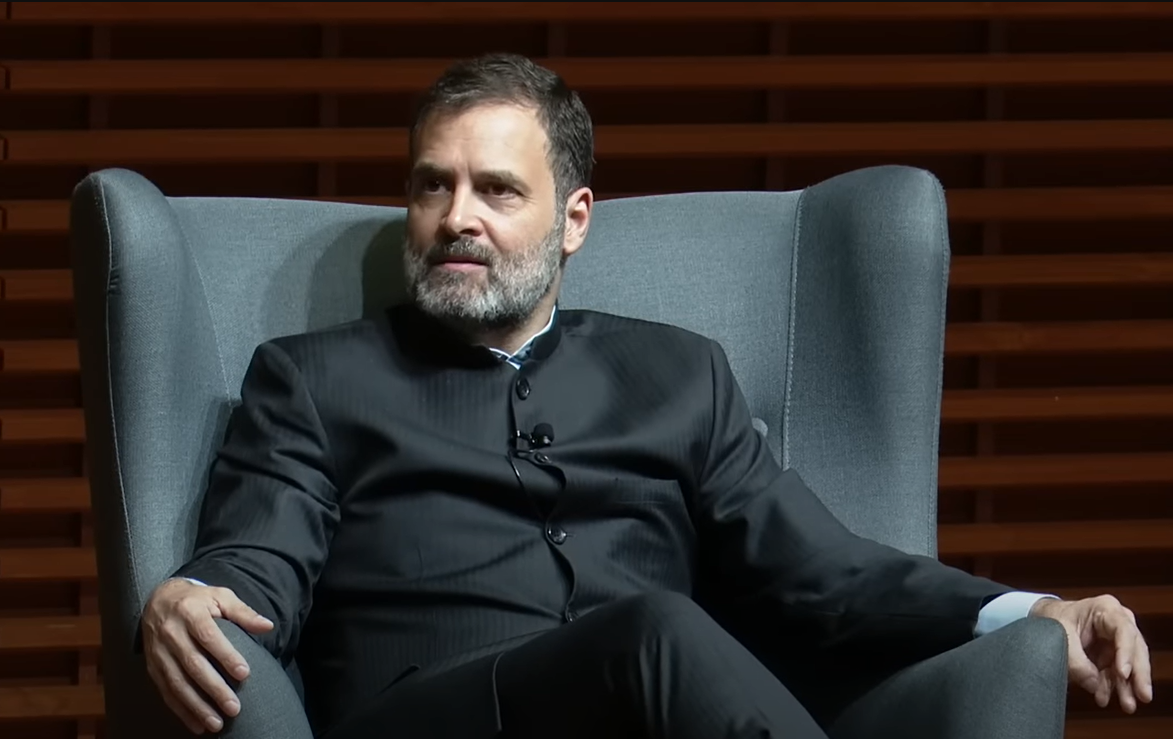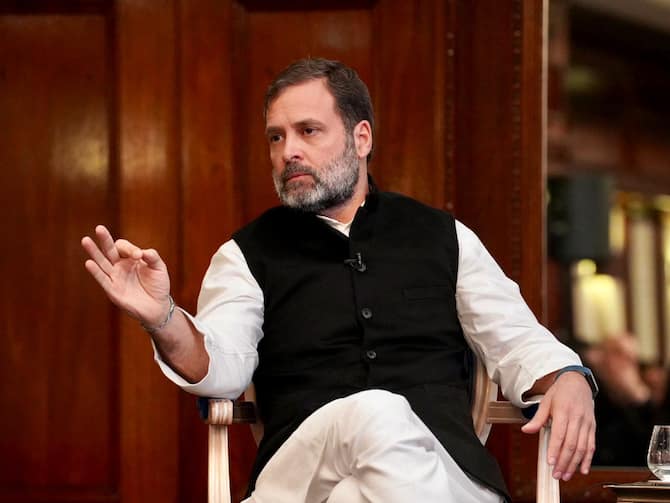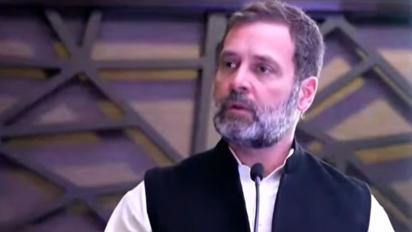US:In a captivating address to the Indian diaspora in New York, Rahul Gandhi, a prominent leader of the Indian National Congress, emphasized the ongoing ideological battle taking place in India. Speaking at the Javits Centre on Manhattan’s west side, Gandhi drew the attention of a gathering of 3,000 individuals, shedding light on the significant contributions of non-resident Indians (NRIs) in shaping India’s freedom movement. He highlighted the contrasting ideologies in India, framing it as a struggle between the principles of Mahatma Gandhi and the beliefs represented by Nathuram Godse, Mahatma Gandhi’s assassin.
Rahul Gandhi Engages Indian Diaspora in the US, Spotlights Ideological Struggle
Gandhi commenced his speech by acknowledging the influential role played by NRIs such as Mahatma Gandhi, Jawaharlal Nehru, Sardar Patel, Subhas Chandra Bose, and BR Ambedkar in shaping India’s fight for independence. He portrayed Mahatma Gandhi as a humble and influential NRI who advocated for non-violence and truth, drawing a stark contrast to Godse’s violent and angry demeanor. Gandhi accused Godse of evading the realities of his own life and perpetuating a violent ideology.
The public gathering in New York served as a platform for Congress leaders from various states to mobilize the diaspora ahead of the upcoming state assembly elections in India. The audience, displaying Congress flags and posters of Rahul Gandhi, patiently awaited the leader’s speech for over two hours, reflecting their enthusiasm and support.
Gandhi expressed his admiration for the achievements and contributions of the Indian diaspora in the United States, attributing their success to their respect for American society, its people, and its customs. He emphasized the importance of looking towards the future and criticized the Bharatiya Janata Party (BJP) and Rashtriya Swayamsevak Sangh (RSS) for their inability to move beyond the past. Using the analogy of driving, Gandhi highlighted the consequences of constantly looking in the rearview mirror without focusing on the road ahead, drawing a parallel to Prime Minister Narendra Modi’s governance.
Gandhi’s visit to the US aimed to strengthen the partnership between India and the United States and address critical issues such as employment opportunities for Indian youth, competition with China, advancements in mobility, data connectivity, and transformations in global energy systems.
During the event, a group of pro-Khalistani protesters disrupted the proceedings. Gandhi responded by showcasing the non-violent and compassionate values of the Congress, contrasting them with aggression and hostility. He emphasized the challenges faced by Indian democracy and the responsibility of every citizen to defend the Constitution and democratic principles.
Dynamic Rousing Speech: Rahul Gandhi Energizes Indian Diaspora in the US, Spotlights Intense Ideological Struggle

The gathering specifically targeted the Telangana diaspora, as Telugu-speakers constitute the largest Indian diaspora group in the US. Congress leaders aimed to garner support for the upcoming state elections, with Telangana president Revanth Reddy stating that close to 650,000 Indians from the state reside in the US.
Prominent Congress leaders, including Deepender Singh Hooda, Amarinder Singh Raja, and Mani Shankar Aiyar, attended the event along with other members of the Indian Overseas Congress (IOC). Encouraging the diaspora to actively participate in politics, IOC Chairman Sam Pitroda outlined strategies such as spreading the party’s message, engaging with families and communities, supporting local candidates, and refining campaign efforts. Pitroda emphasized the significance of the upcoming elections, as they would determine the future trajectory of India.
The event witnessed a significant representation from southern states, Punjab, Haryana, as well as individuals associated with Muslim, Christian, and Dalit organizations.
Voicing his opposition to the BJP, Satinath Chaudhary, an 81-year-old Dalit who migrated to the US in 1965, criticized the party’s dominance by upper castes and its stance against reservations. Chitralekha, a business analyst from New Jersey, highlighted Rajiv Gandhi’s contribution to computer education and technology in India, expressing support for the Congress and Rahul Gandhi.
Rohit Karupati, a software engineer from Andhra Pradesh, attended the event seeking solutions to mend India’s social fabric, which he believed had been damaged by the BJP. Expressing concern over the portrayal of a starkly different India from the one he grew up in, Karupati expressed a desire to understand the changes Rahul Gandhi aimed to bring about.
By addressing the Indian diaspora and seeking their support, Rahul Gandhi and the Congress aimed to engage a vital segment of the Indian community abroad. Their focus was on the upcoming elections and the future trajectory of India’s governance, underscoring the significance of the ideological battle that continues to shape the country’s political landscape.

